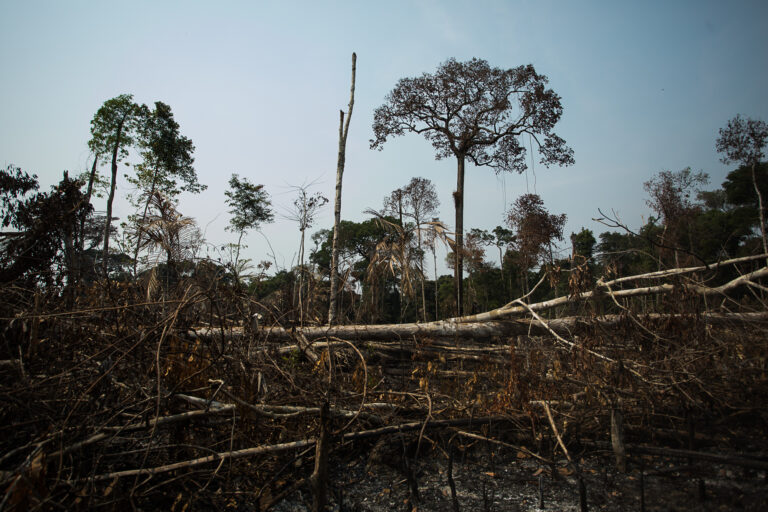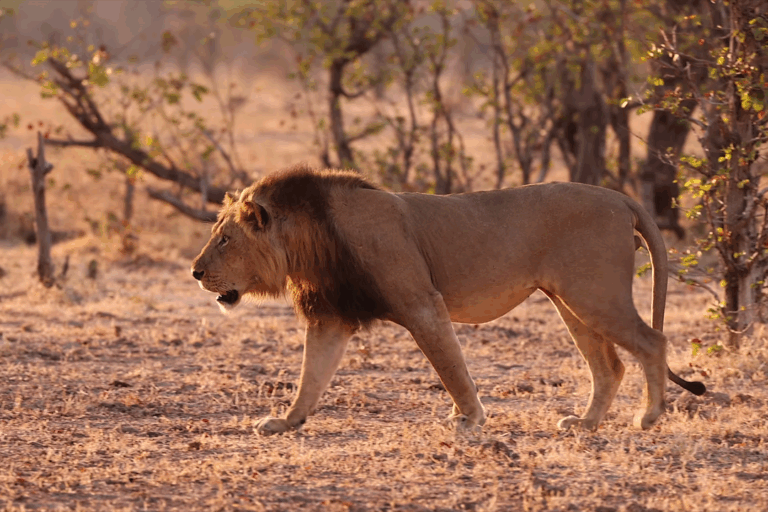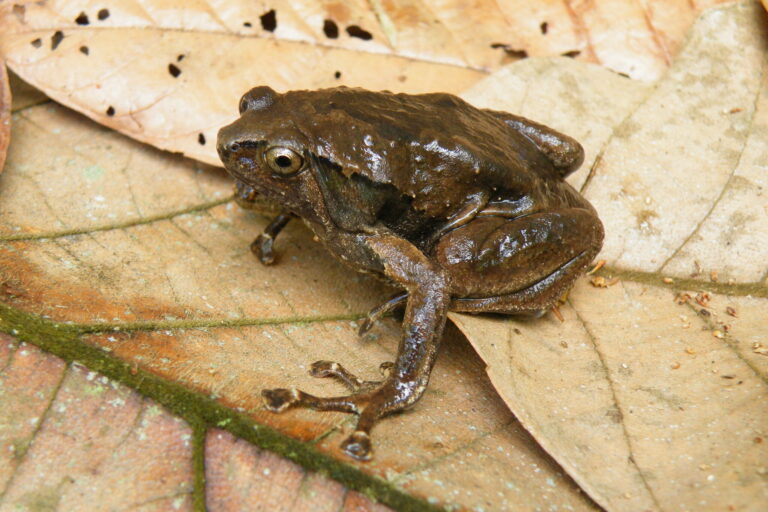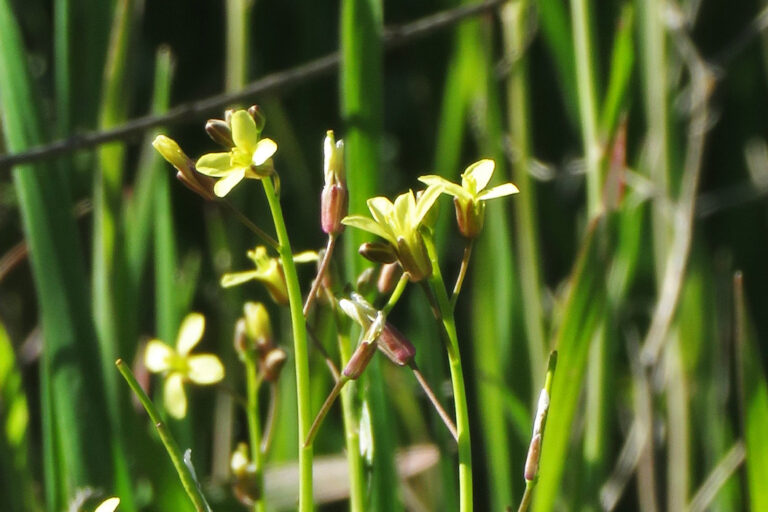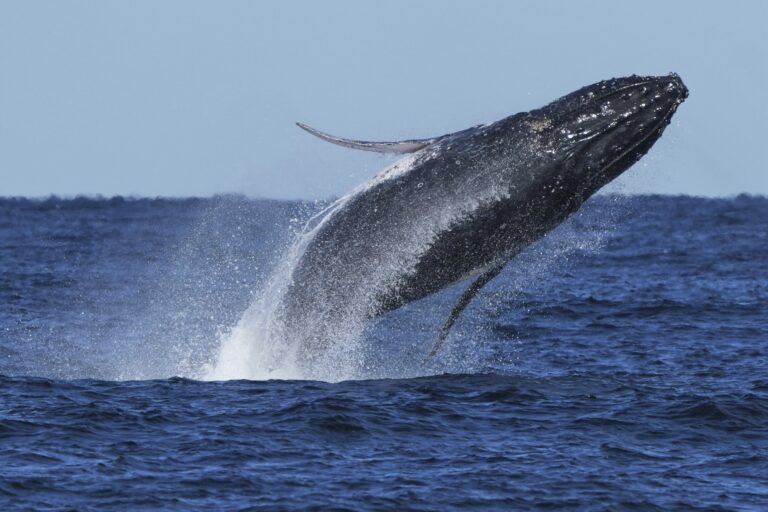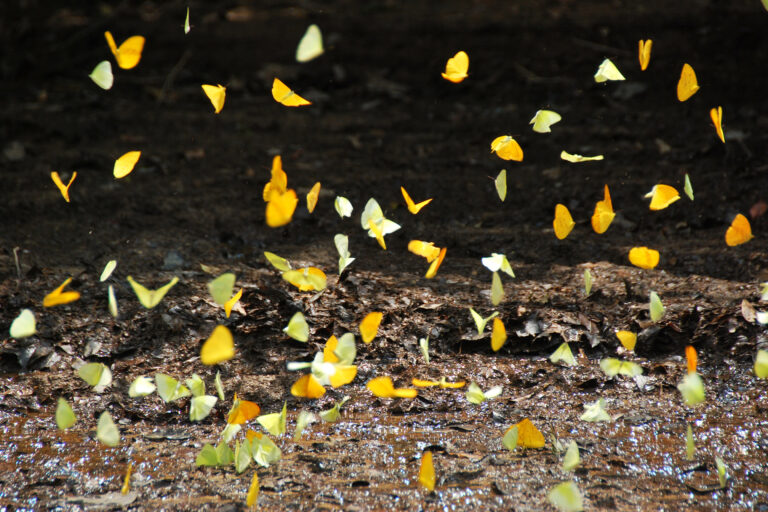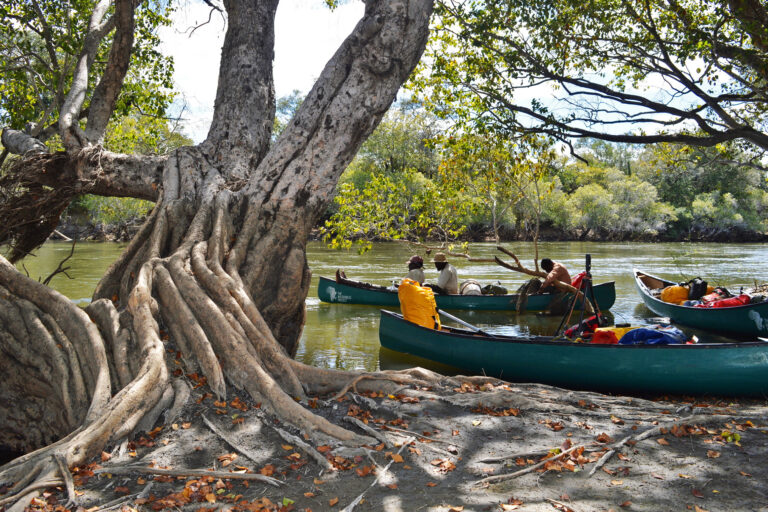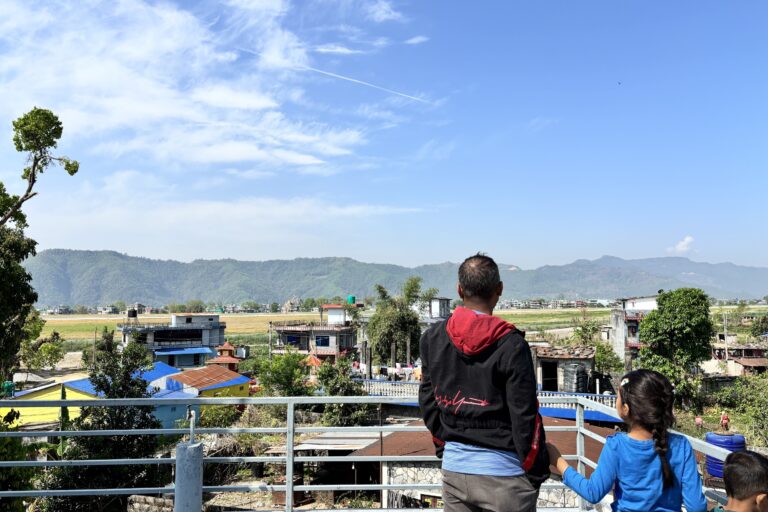- Mongabay produced a record number of stories and continued to see strong readership during May.
- Our direct site-wide readership amounted to 15.1 million pageviews, 56% higher than May 2019.
- COVID stories represented just over one-quarter of the stories produced during the month.
- Below are the 20 news.mongabay.com stories that attracted the most traffic during May 2020.
Mongabay produced a record number of stories and continued to see strong readership during May. Our direct site-wide readership amounted to 15.1 million pageviews, 56% higher than May 2019.
While we continued to cover the impacts of COVID-19 on conservation and the environment, COVID-focused stories only accounted for five of the 20 most popular stories on our Global English bureau’s site. COVID stories represented just over one-quarter of the stories produced during the month.
For the month, Mongabay-Brasil, our Brazilian Portuguese bureau, experienced a 400% increase in traffic over April 2020.
Below are the 20 news.mongabay.com stories that attracted the most traffic during May 2020. This list does not include stories from our Indonesia, Latam, India, or Brazil bureaus.
Sinking feeling for Indonesian fishers as COVID-19 hits seafood sales
(4/7/20) Written by Falahi Mubarok and M Ambari – 477322 pageviews
- Indonesia is taking measures to prop up declining sales of fish amid a slump in demand caused by the response to the COVID-19 pandemic.
- Restaurants and shopping malls have been shut down in most large cities across the country as part of social distancing measures, leading to the decline in demand for seafood.
- Fish exports have also slowed as Indonesia, like many other countries, has restricted its trade with other affected countries.
- Indonesia had nearly 2,500 confirmed COVID-19 cases as of April 6, mostly in Java, with 209 deaths.
Photos: Up close with the saltwater crocs of Sri Lanka’s Nilwala River
(5/4/20) Written by Rajiv Welikala – 464367 pageviews
- Sri Lanka is home to around 2,500 to 3,500 saltwater crocodiles, more than half of which are found in national parks.
- Though not as common here as the mugger crocodile, salties occur in estuaries and riverine systems on the western, southern and eastern coasts of the Indian Ocean island.
- An increase in the number of crocodile attacks on people has been recorded in recent years, despite some measures introduced to prevent conflict between man and croc.
Using satellites to alert an Amazonian indigenous community of coca encroachment (insider)
(4/13/20) Written by Rhett A. Butler – 419662 pageviews
- In early March 2020, Mongabay founder Rhett A. Butler visited the tri-border area of Peru, Colombia and Brazil and used the opportunity to explore a cluster of potential deforestation hotspots detected by Global Forest Watch’s GLAD alert system.
- According to Global Forest Watch, the patches were small and dispersed. Therefore Butler expected to find small-scale clearing for subsistence or local agriculture. But he was in for a bit of a surprise: forest within an indigenous reserve was being cleared for coca, unbeknown to the local community.
- Given the sensitivity and the potential security implications of the issue, Mongabay won’t be disclosing the name of the community or the location of the coca fields.
- This post is insider content, which is available to paying subscribers.
In famed Chico Mendes reserve, Brazil nut harvesters fight to save the forest
(4/22/20) Written by Débora Pinto – 337270 pageviews
- The Chico Mendes Extractive Reserve was named in honor of the rubber tapper who was assassinated for pushing back against the deforestation of this part of Brazil’s Acre state for cattle pastures.
- Today, the reserve’s inhabitants continue the long tradition of sustainable forest use, albeit harvesting Brazil nuts rather than tapping rubber, in keeping up with changing market demands.
- However, the Brazil nut industry remains largely informal and unregulated, and is seasonal, which forces many extractivists to turn to cattle ranching during the rest of the year to supplement their income.
- Clearing forest for livestock pasture is the main driver of deforestation in the reserve, which so far this year has recorded the highest rate of forest loss of any protected area in Brazil.
Deadly conditions for Indonesian migrant crews tied to illegal fishing
(1/6/20) Written by Basten Gokkon – 303291 pageviews
- A recent report by the environmental group Greenpeace highlights harrowing testimonies from Indonesian migrant workers about dire conditions on board foreign distant-water fishing vessels.
- The workers told of being overworked, having their wages withheld, being forced into debt bondage, and experiencing physical and sexual violence.
- Experts say slavery on board fishing vessels is strongly linked to illegal fishing activities.
- Greepeace has called on governments and boat operators to resolve human rights issues at sea as part of efforts to achieve sustainable fisheries.

As COVID-19 response batters sales, Indonesia’s shark fishery gets a respite
(5/5/20) Written by Basten Gokkon – 279828 pageviews
- The shark and ray fishery in Indonesia has largely ground to a halt as a result of plummeting demand due to COVID-19-related export restrictions and a domestic lockdown that has hit the restaurant industry.
- West Nusa Tenggara province, the heart of the country’s shark fishery and home to one of the world’s biggest markets for the species, saw trade volume drop by 68% in the first quarter of the year.
- Conservationists say this is an opportunity to evaluate and improve the fishery by beefing up monitoring and traceability to protect the sustainability of wild populations, while also supporting fishers with alternatives sources of income.
- Indonesia, which has the world’s highest diversity of sharks, allows the catch of some endangered species for domestic consumption, but loopholes effectively allow the illegal export of protected species.
Our 20 top conservation and environmental science stories in April 2020
(5/3/20) Written by Mongabay.com – 196707 pageviews
- Mongabay continued to see strong readership during April. Our Global English, India, and Latam bureaus all experienced unprecedented levels of traffic as our direct site-wide readership reached 16.9 million pageviews, a 33% increase over last month’s record.
- 46 of the 165 stories published on news.mongabay.com in April focused on the impacts of the coronavirus pandemic on conservation, the environment, or indigenous and local communities.
- Below are the 20 news.mongabay.com stories that attracted the most traffic during April 2020.
- This list does not include stories from our Indonesia, Latam, India, or Brazil bureaus. It also excludes traffic from our mobile app.
Indonesia lifts export ban on baby lobsters aimed to protect wild population
(5/8/20) Written by Basten Gokkon – 166580 pageviews
- Indonesia has lifted a ban on exporting baby lobsters, previously put in place to conserve the wild population of the animal.
- The fisheries ministry has issued new requirements to regulate exports, including setting an annual quota and limiting the sites from where the lobsters can be harvested.
- But the decision has been widely criticized by conservationists and the former fisheries minister, Susi Pudjiastuti, who warn the resumption of exports threatens to deplete the wild population.
- Experts have called on the government to instead prioritize sustainable lobster aquaculture in the country, involving small-scale and traditional fishermen.
Chinese boat that dumped Indonesian crews at sea was also shark-finning: Reports
(5/14/20) Written by Basten Gokkon – 159610 pageviews
- A Chinese fishing company under scrutiny for the deadly labor abuses of its Indonesian boat crews was likely also engaged in illegal fishing, conservationists say.
- Jakarta has demanded answers for the slavery-like conditions under which the crew members worked on board a tuna boat belonging to the Dalian Ocean Fishing Co. Ltd.
- Four of the crew members died of illness, with three of them dumped at sea; photos provided by the surviving crew indicate the boat was engaged in the illegal finning of threatened shark species.
- “[Illegal] fishing and modern slavery practices at sea are two sides of the same coin,” said Greenpeace Indonesia oceans campaigner Arifsyah Nasution.

From crisis to solutions for communities and African conservation (commentary)
(5/20/20) Written by Dickson Kaelo; Daniel Sopia; Damian Bell; Richard Diggle,Fred Nelson – 150971 pageviews
- The COVID-19 pandemic has created a profound crisis for conservation efforts in eastern and southern Africa as a result of the sudden cessation of all international travel in a region where nature-based tourism and conservation are closely interdependent.
- Conservation leaders Dickson Kaelo, Daniel Sopia, Damian Bell, Richard Diggle, and Fred Nelson argue that the way that conservationists respond to both the near-term crisis and the longer term implications of the unfolding pandemic will be pivotal for the future of Africa’s wildlife.
- The crisis, they write, is also an opportunity to question inherited assumptions, refine existing models, and improve conservation practices.
- This post is a commentary. The views expressed are those of the author, not necessarily Mongabay.
Russia lists Caspian seals and orcas as endangered species after ‘whale jail’ controversy
(4/24/20) Written by Elizabeth Claire Alberts – 148684 pageviews
- Mammal-eating orcas and Caspian seals were recently listed as endangered species by Russia, following the “whale jail” debacle that raised international concerns.
- This is the first time in more than 20 years that the Russian government has updated its red book of locally threatened species, so conservationists and animal advocates see this latest move as an enormous victory.
- This is also the first time that Russian authorities have acknowledged that there are two ecotypes of orcas — mammal-eating orcas and fish-eating orcas.
- Experts say they believe the new red book listings will put a halt to the international trade of orcas captured in Russian waters, although belugas may still be trafficked.
What’s in a name? ‘Wet markets’ may hide true culprits for COVID-19
(4/23/20) Written by Elizabeth Claire Alberts – 147198 pageviews
- The term “wet market” is typically used to describe places in China and other Asian countries that sell fresh vegetables, fruits, seafood and meat from domesticated animals.
- Only a small minority of Asian wet markets sell wildlife, including illegally trafficked wildlife, although wet markets are unduly conflated with the wildlife trade, experts say.
- Wet markets, or their equivalents, are found in many places around the world, including the U.S.
- The World Health Organization (WHO) recently released new hygiene and sanitation guidelines for food markets around the world.
Twelve rangers killed in latest Virunga Park incident
(4/25/20) Written by Fred Kockott – 131133 pageviews
- Virunga National Park officials say 17 people were killed in a sustained attack not far from the park’s headquarters.
- Armed rebel groups involved in poaching and illegal charcoal production are believed to be responsible.
- Virunga National Park was closed for 8 months from May 2018 following a spate of attacks on visitors by armed groups.
In Panama, agroforestry technique of silvopasture improves ranching traditions
(4/29/20) Written by Erin Banks Rusby – 123636 pageviews
- Ranching in Panama dates back to the 1500s, when Spanish settlers decided that cattle were the agricultural commodity that grew best in the tropical climate.
- However, this tradition has severely deforested the tropical nation and depleted its soil resources too, twin problems that are worsening in tandem with the effects of climate change.
- However, the agroforestry technique of silvopasture ranching, where trees and woody shrubs are planted into livestock pastures, is gaining ground here.
- Not only is it much more profitable than conventional ranching, but the system also provides habitat for monkeys, insects, birds and more while sequestering carbon from the atmosphere.

Amazon tribe creates 500-page traditional medicine encyclopedia
(6/25/15) Written by Jeremy Hance – 118089 pageviews
- In one of the great tragedies of our age, indigenous traditions, stories, cultures and knowledge are winking out across the world.
- Whole languages and mythologies are vanishing, and in some cases even entire indigenous groups are falling into extinction.
- This is what makes the news that a tribe in the Amazon have created a 500-page encyclopedia of their traditional medicine all the more remarkable.
Decade after BP Deepwater Horizon spill, oil drilling is as dangerous as ever
(4/20/20) Written by Liz Kimbrough – 117002 pageviews
- Ten years ago, the BP Deepwater Horizon exploratory rig exploded, killing 11 people and initiating the largest oil spill in the history of the United States.
- Nearly 5 million barrels of oil spilled into the Gulf of Mexico, causing catastrophic damage to the ecosystem and economy of the region.
- A newly published report by the nonprofit Oceana looks back at how this spill happened, the resulting ecological and economic impacts, and if this catastrophe has changed government or oil industry approaches to offshore drilling.
- Poor government oversight and inadequate safety culture paved the way for the BP Deepwater Horizon explosion. Now, a decade later, it appears these conditions, the prerequisites for disaster, have not improved.
China held water back from drought-stricken Mekong countries, report says
(4/30/20) Written by Michael Tatarski – 114905 pageviews
- Eyes on Earth studied data from a 28-year period to determine the extent that dams in China on the Upper Mekong River impact natural water flow.
- While these dams have disrupted the river’s natural systems for years, 2019 saw a particularly damaging situation, as downstream countries faced a severe drought while the Upper Mekong received above-average rainfall.
- China’s water management practices and lack of data-sharing with neighboring countries threaten the livelihoods of roughly 60 million people.
Nigeria declares new conservation zone for most threatened chimpanzee
(4/3/20) Written by Linus Unah – 110189 pageviews
- The government of Nigeria’s Ekiti state has issued an executive order establishing a conservation area within the Ise Forest Reserve, where about 20 Nigeria-Cameroon chimpanzees are believed to survive.
- With perhaps as few as 3,500 left in the wild, the Nigeria-Cameroon chimpanzee faces threats including hunting, logging and forest clearing for agriculture across its range.
- Upgrading the reserve to a conservation area will put stricter forest-protection measures in place.
- Before doing so, conservationists say they will work to gain the consent and support of forest-dependent communities in the area.
Thailand’s captive elephants face starvation amid COVID-19 tourism freeze
(4/21/20) Written by Elizabeth Claire Alberts – 102777 pageviews
- The COVID-19 crisis has brought tourism in Thailand to a halt, forcing at least 85 elephant camps in northern Thailand to close and lay off more than 5,000 staff.
- Captive elephants used in the tourism industry are at high risk of starvation and neglect, animal advocates say.
- Organizations like Save Elephant Foundation and World Animal Protection are working to bring food and other resources to as many needy elephants as possible.
- Sanctuaries are also facing difficult times without revenue from paying volunteers and day guests.
Hanging with Romi: Get to know our camera trap aficionado and host of Candid Animal Cam
(4/8/20) Written by Erik Hoffner – 99606 pageviews
- Romina Castagnino is the host of our new video series that features camera trap footage of wildlife behavior
- Candid Animal Cam episodes are published every Tuesday and they share a wide variety of facts and footage of fascinating animals like tapirs and spectacled bears
- Trained as a conservation biologist, Romi has used camera traps extensively in her wildlife studies and shares this knowledge in each episode
- Teachers and parents with students at home are invited to view these videos with kids, and to use the links provided to learn more about each animal, every Tuesday
Header image: Indonesia has a thriving black market for baby lobsters. Image by Vinolia/Mongabay-Indonesia.








